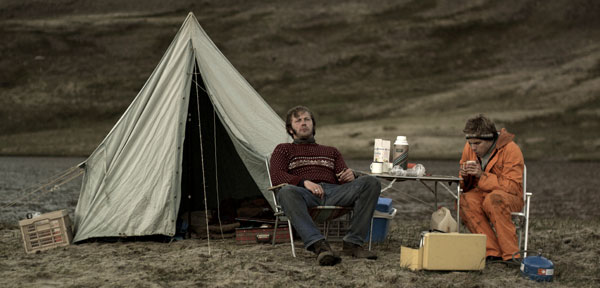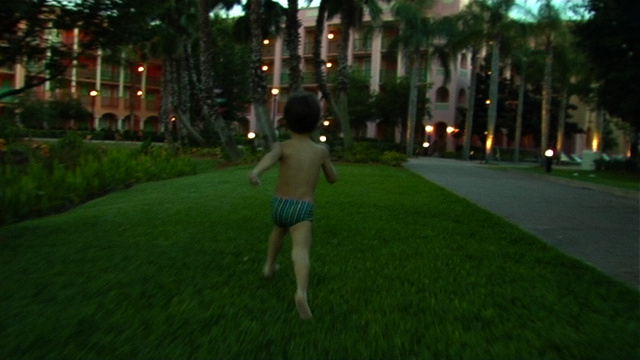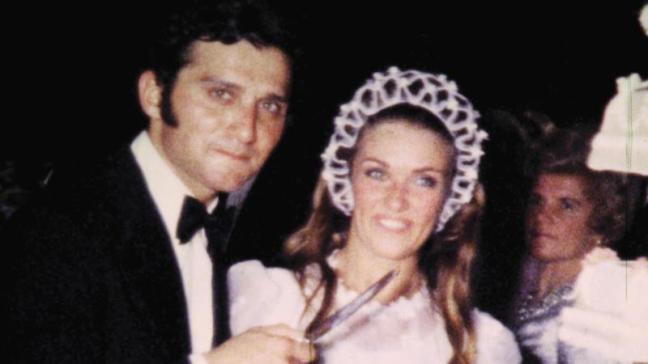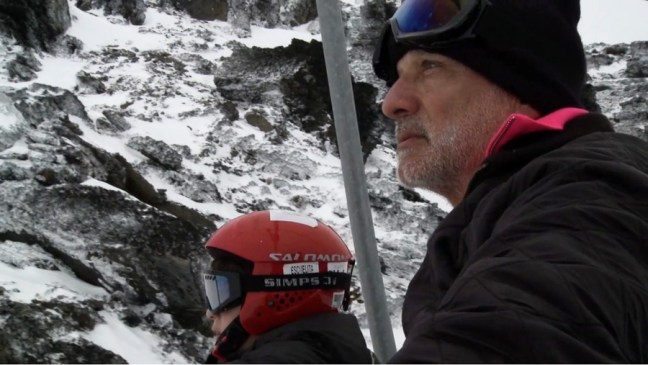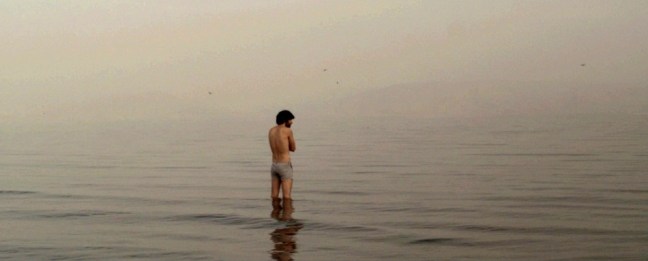Finnbogi (Sveinn Ólafur Gunarsson) and Alfred (Hilmar Guojónsson) are tasked with painting the dividing lines on a deserted road in the majestic Icelandic landscape. Isolated from the city, with only each other for company week in, week out, the yellow lines on the road come to represent a point at which two mens’ opposing personalities cause a rift between them, both hilarious and tragic.
Aside from Finnbogi’s relationship with Alfred’s sister, the two men have almost nothing in common, Alfred preferring clubbing and the pursuit of women whereas Finnbogi likes fishing and reading. Minimalist in action and plot, much of the pleasure of Either Way comes from the inevitable humour arising from Finnbogi and Alfred’s very different values.
In one highly droll scene, Alfred gives a detailed chronological account of his two days back in the city spent attempting to party hard and find a woman to sleep with. Finnbogi listens attentively as he (and in turns the audience) live vicariously through Alfred. With so little action set amidst the glorious mountainous terrain, Alfred’s tale of his own ineptitude becomes fascinating, and absurdly funny. At several points in the film, Finnbogi and Alfred are visited by a truck driver who, oddly, plies them with alcohol in a rather insistent and random celebration of their hard work. Deciding they need to cut loose from their repetitive routine, the tow men indulge a little too heavily in their gifted drink, breaking the silence of the valley with their elated cheers and laughter.
Cinematographer Áarni Filippusson (who worked on the Sigur Rós documentary Heima) places the magnificence of the Icelandic country centre stage and the landscape in Either Way becomes the film’s third character. The cinematography, scenery and the brilliantly witty dialogue are just a few of the many pleasures of writer and director Hafsteinn Gunnar Sigurosson’s debut feature film.
This piece originally appeared in the EIFF Catalogue 2012. The film is available to watch on the Filmhouse Player

